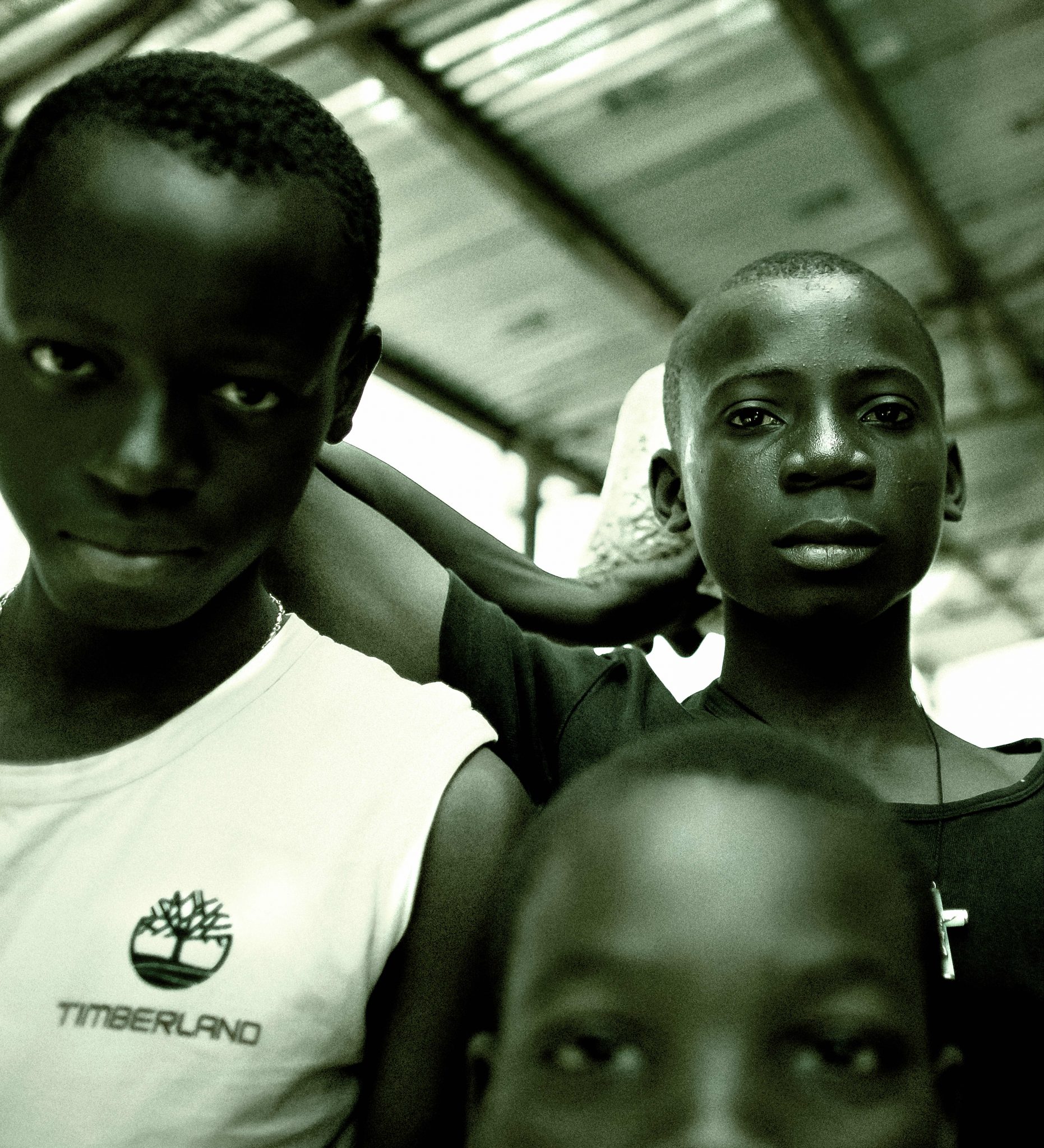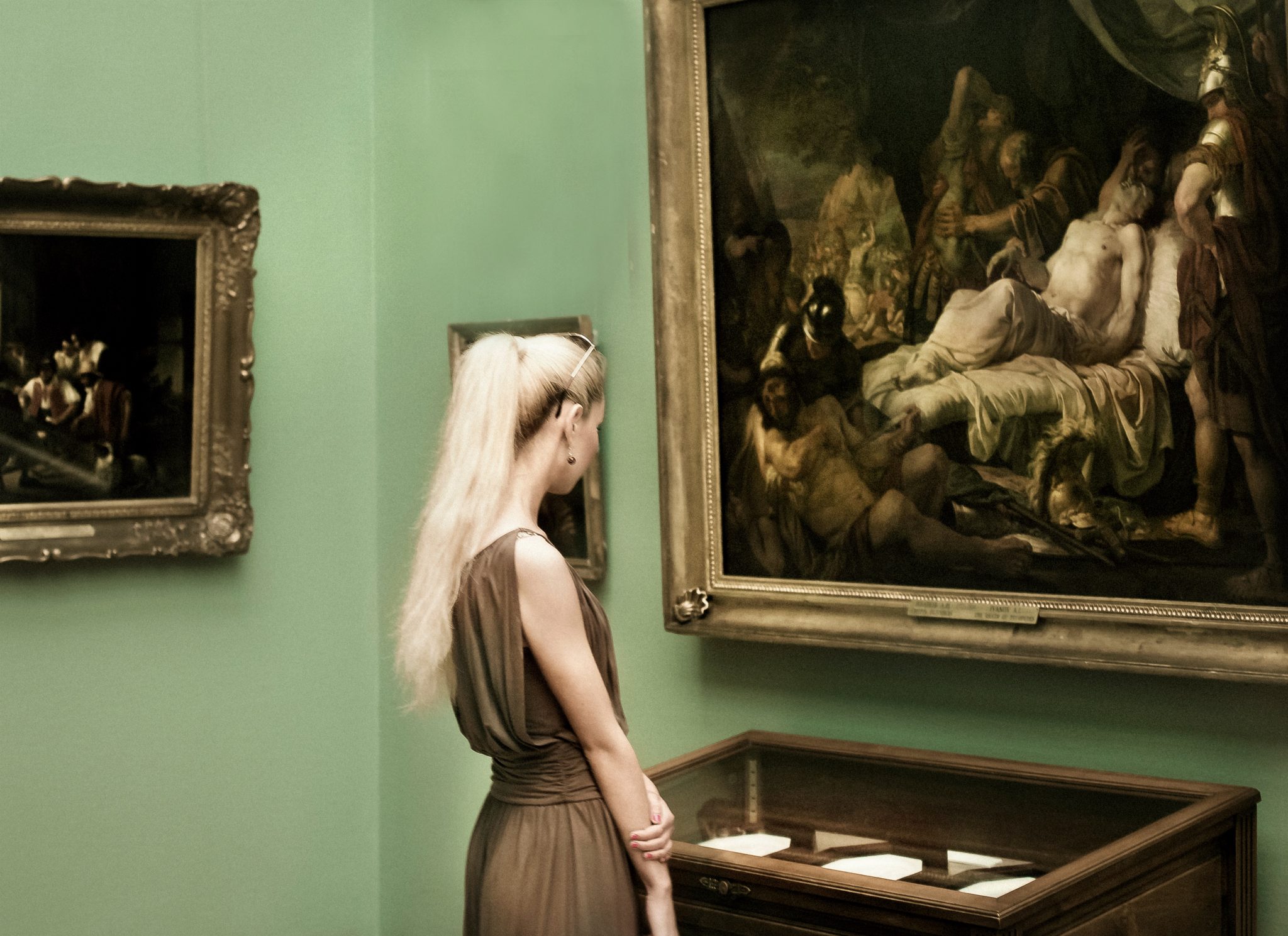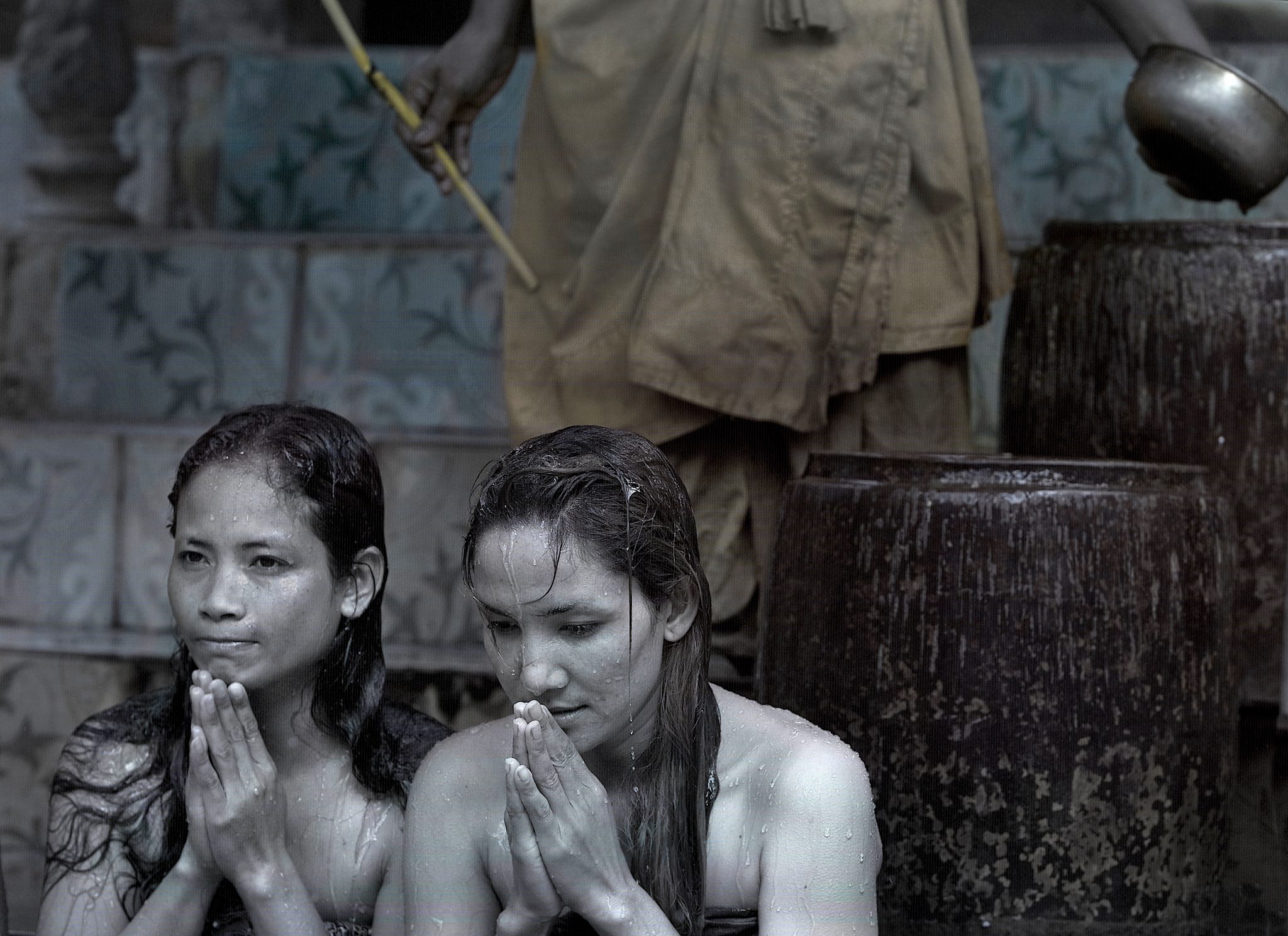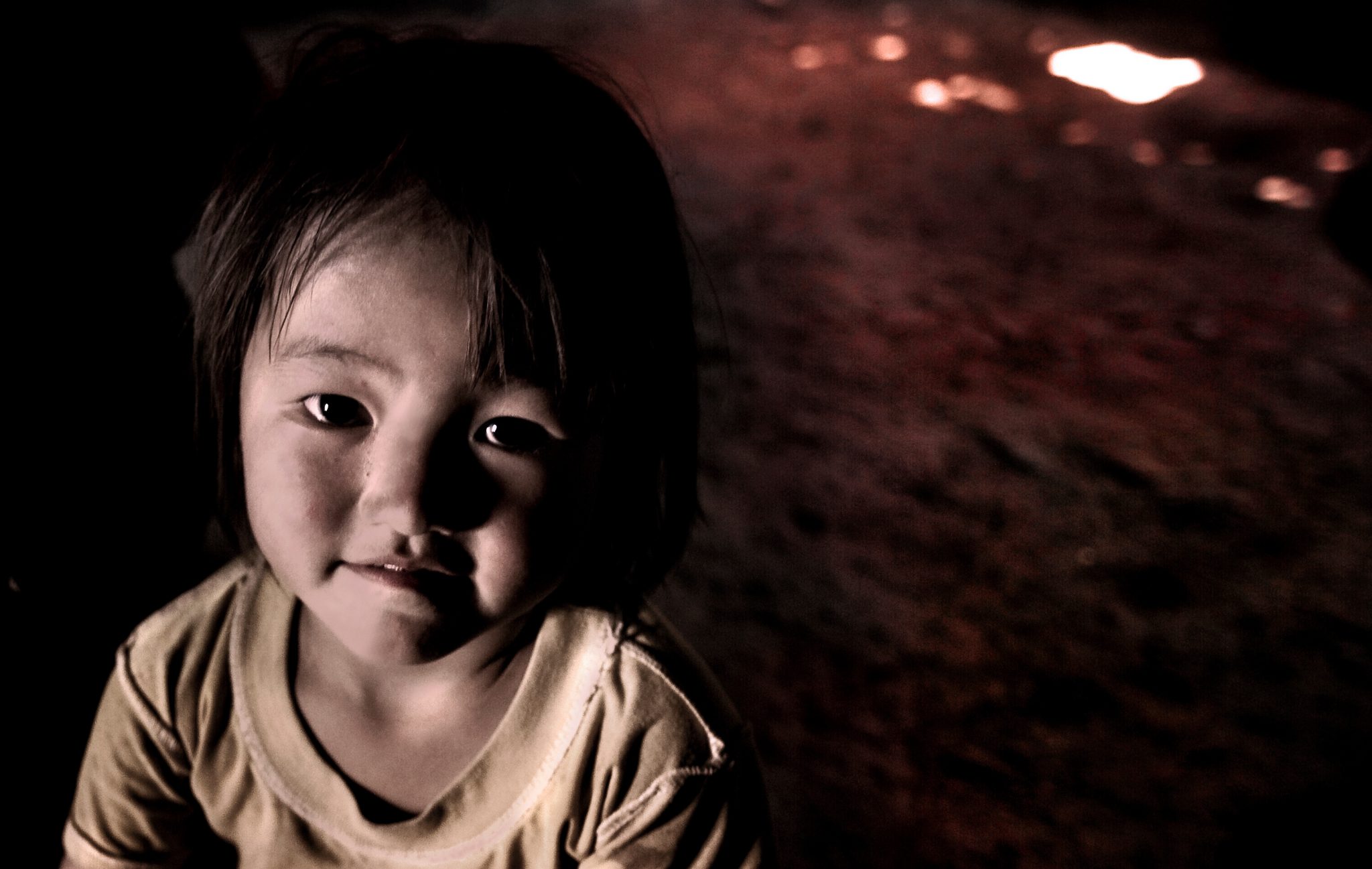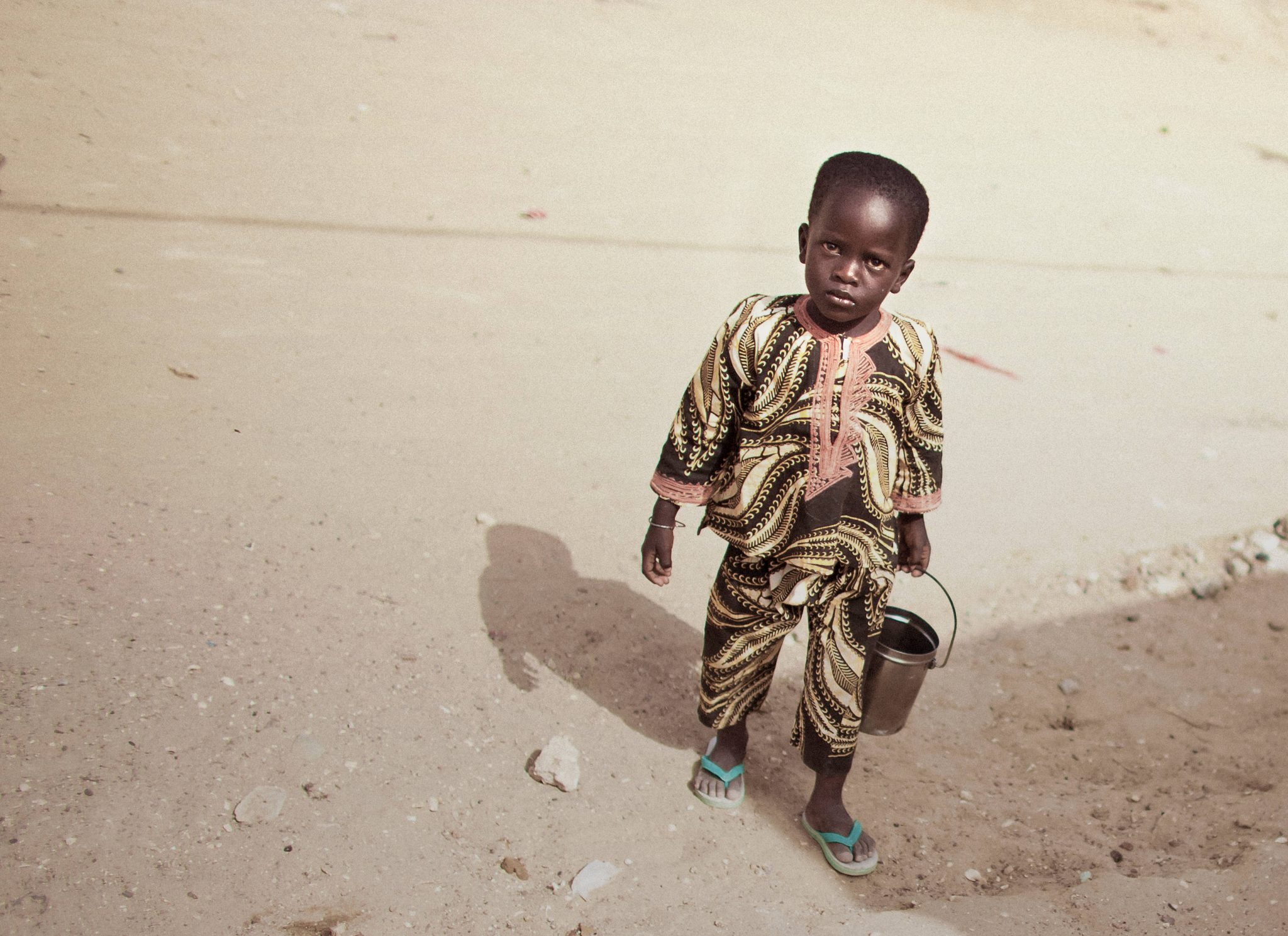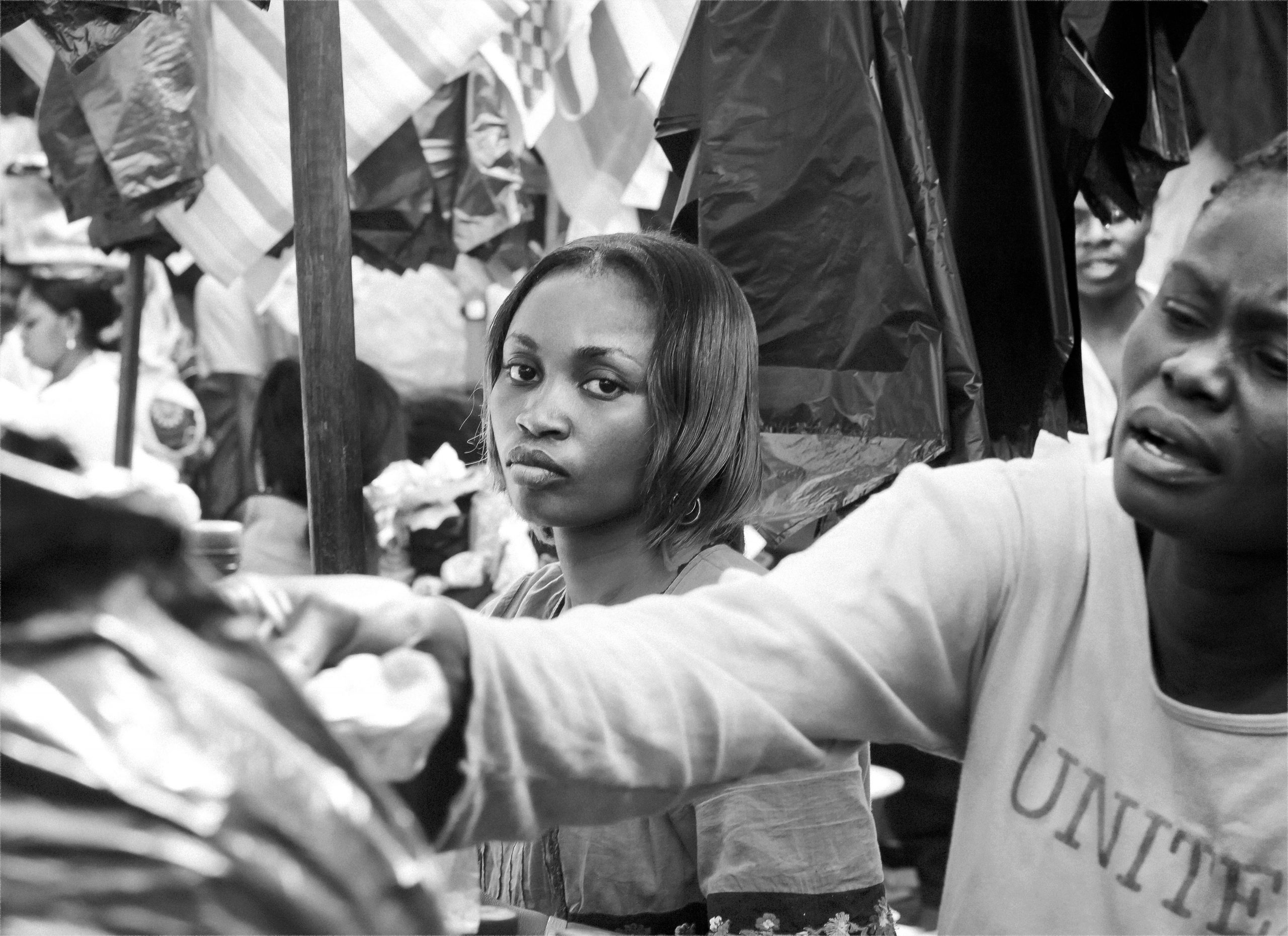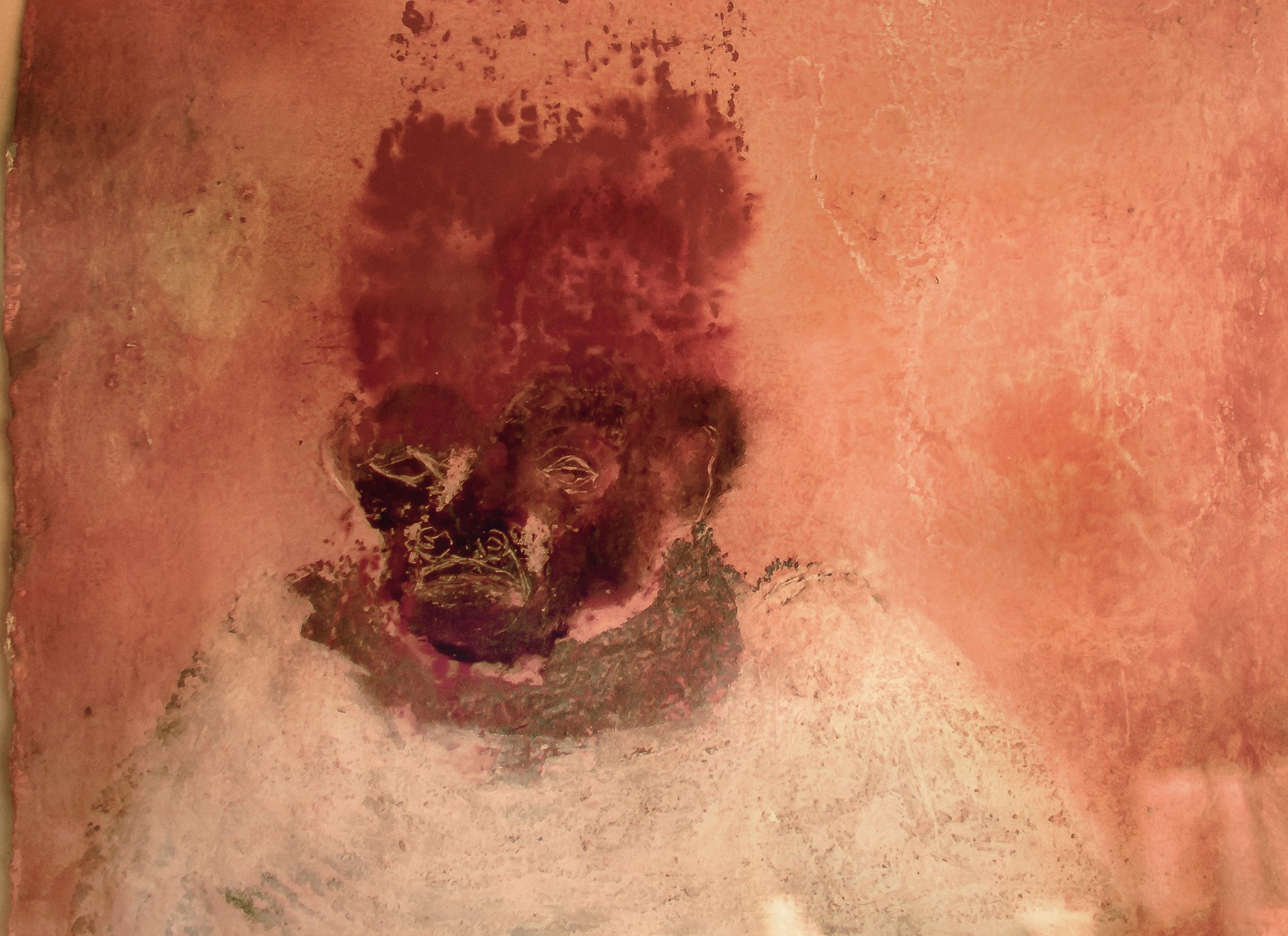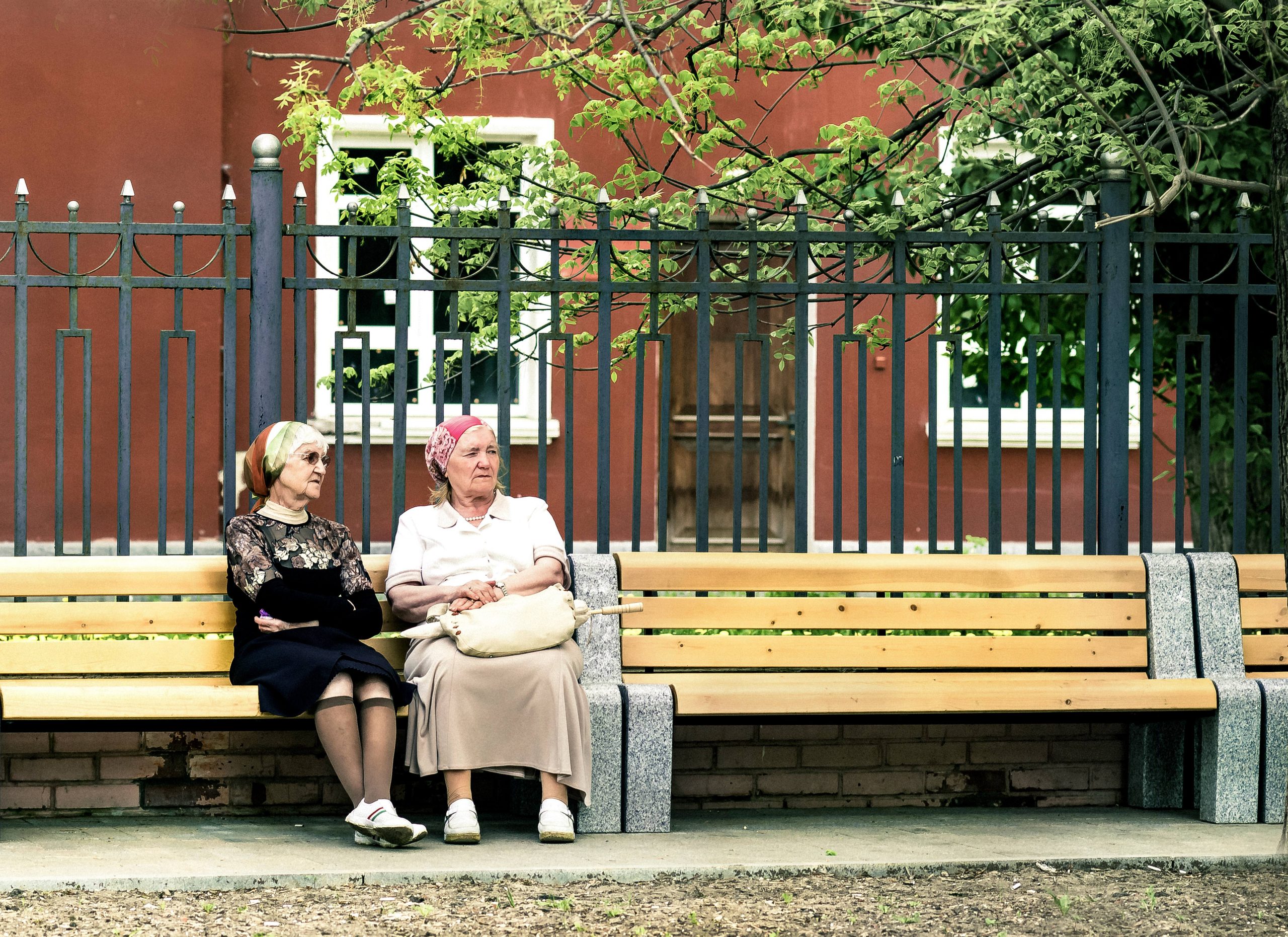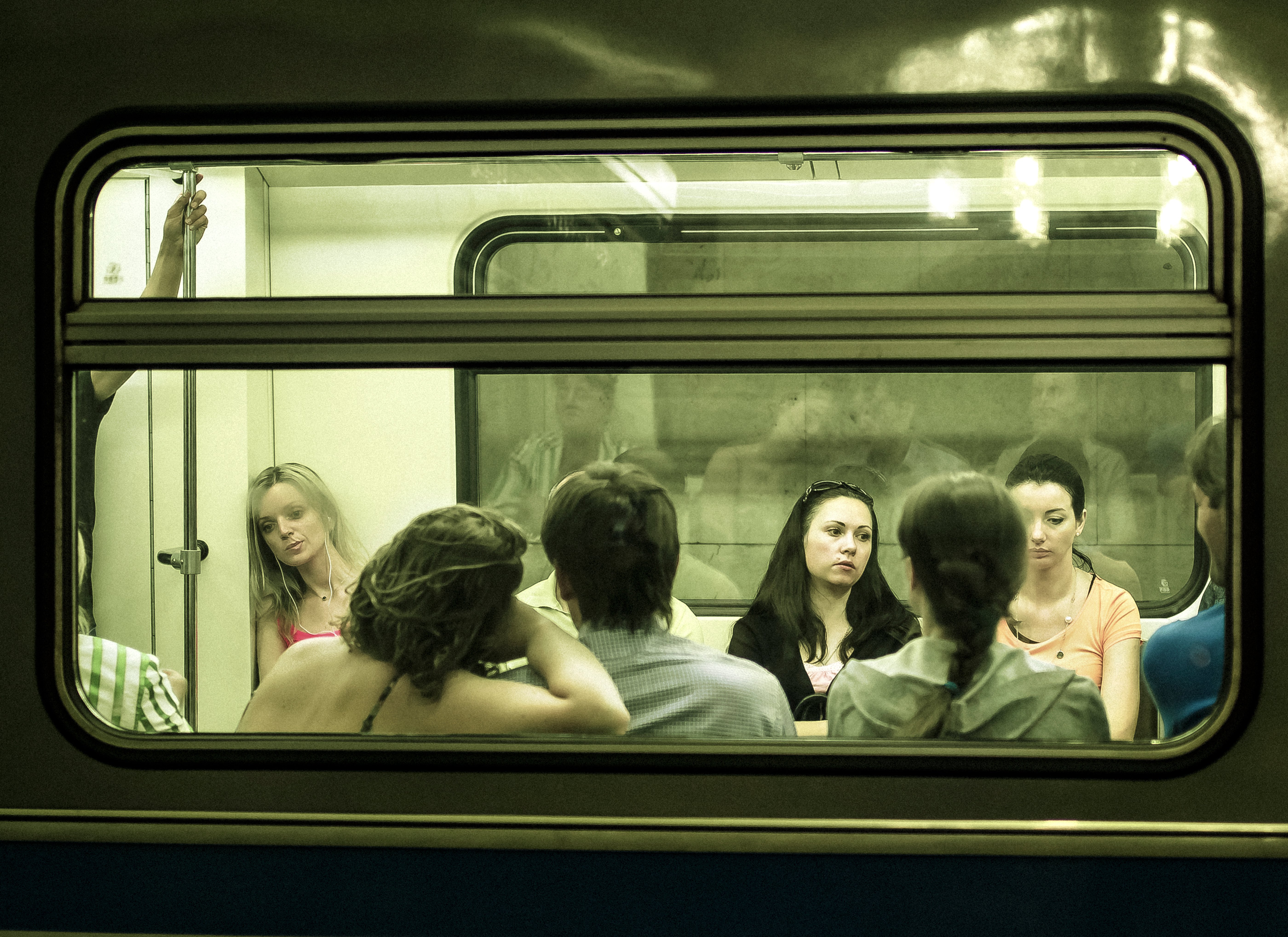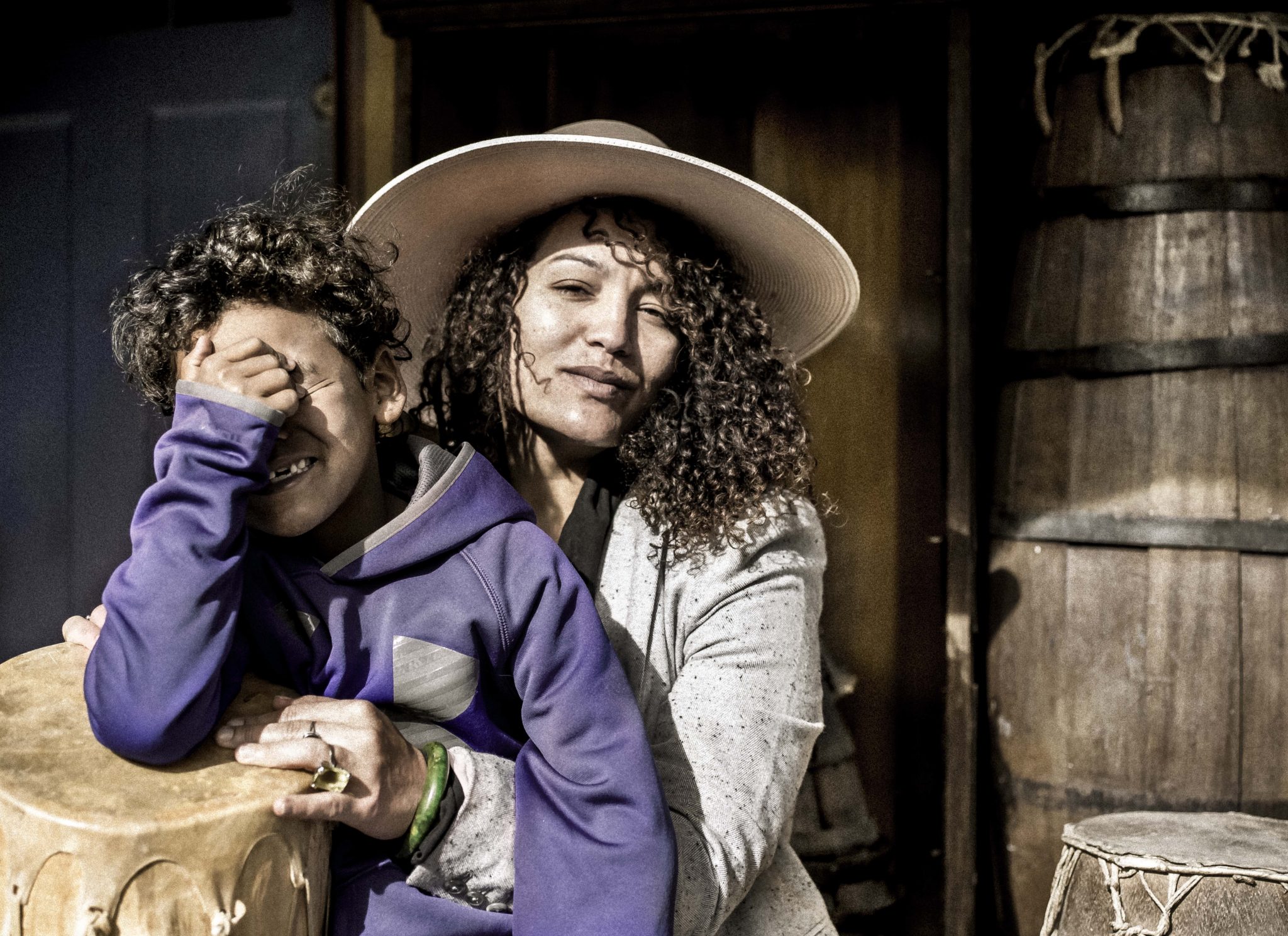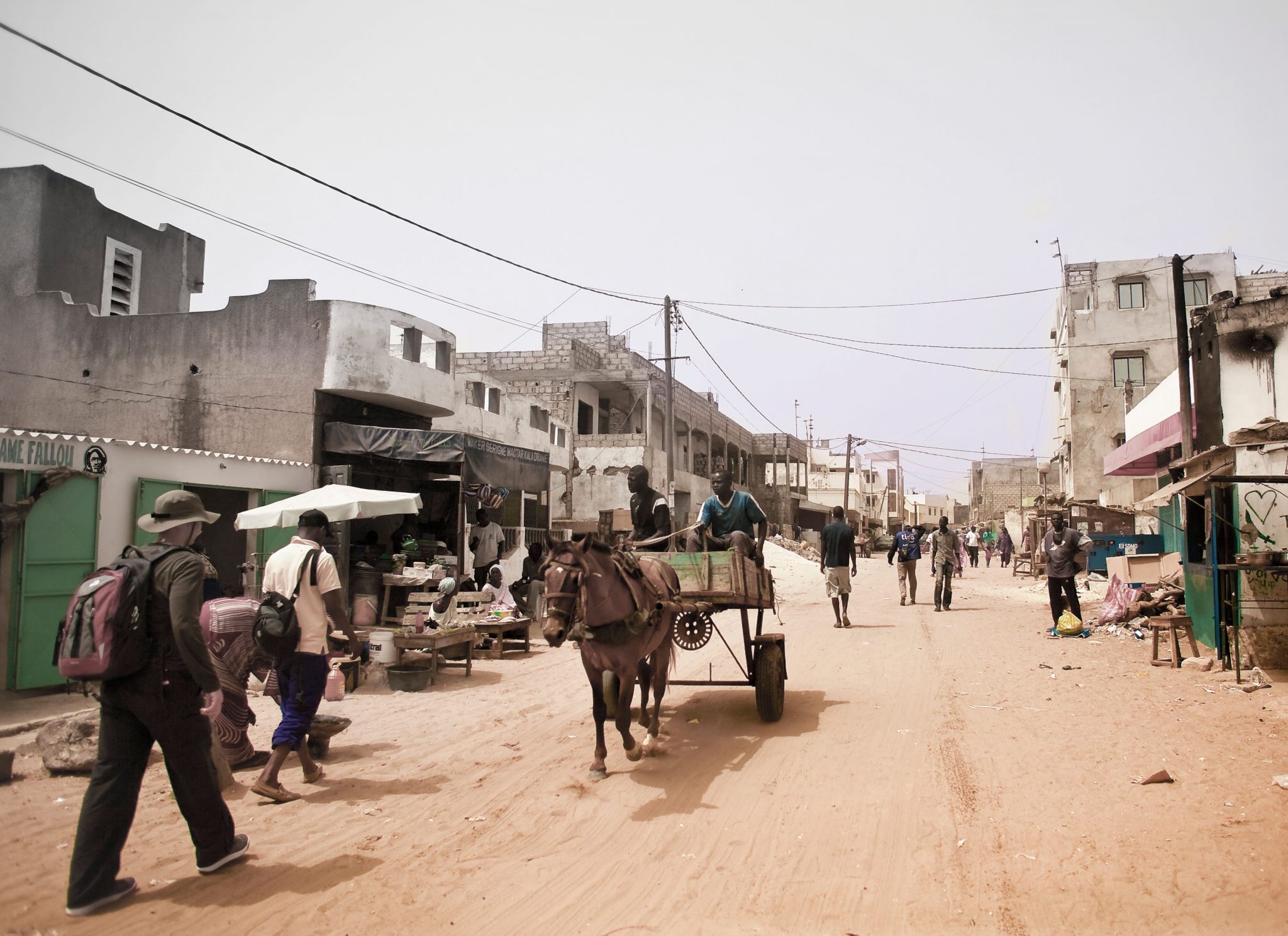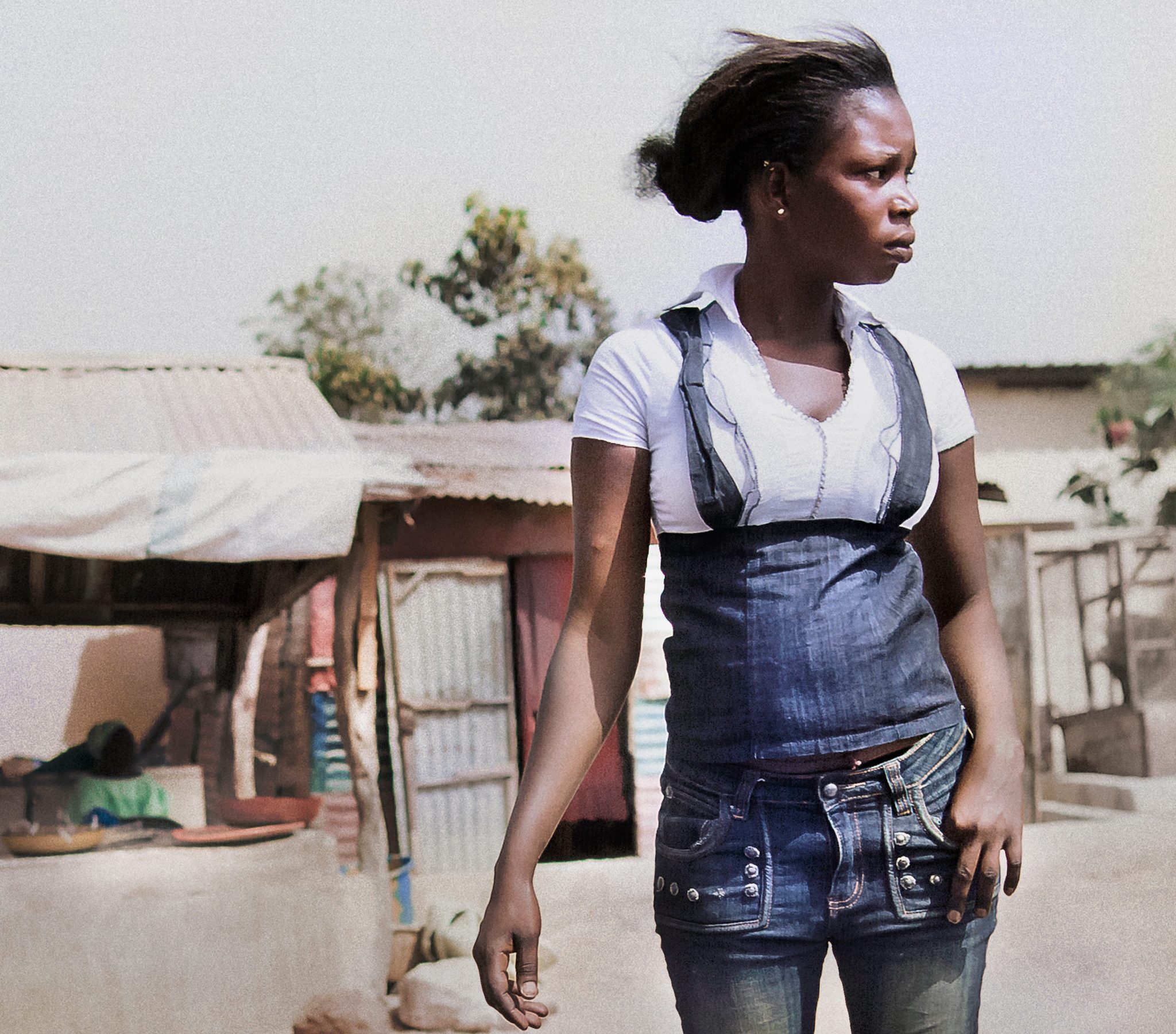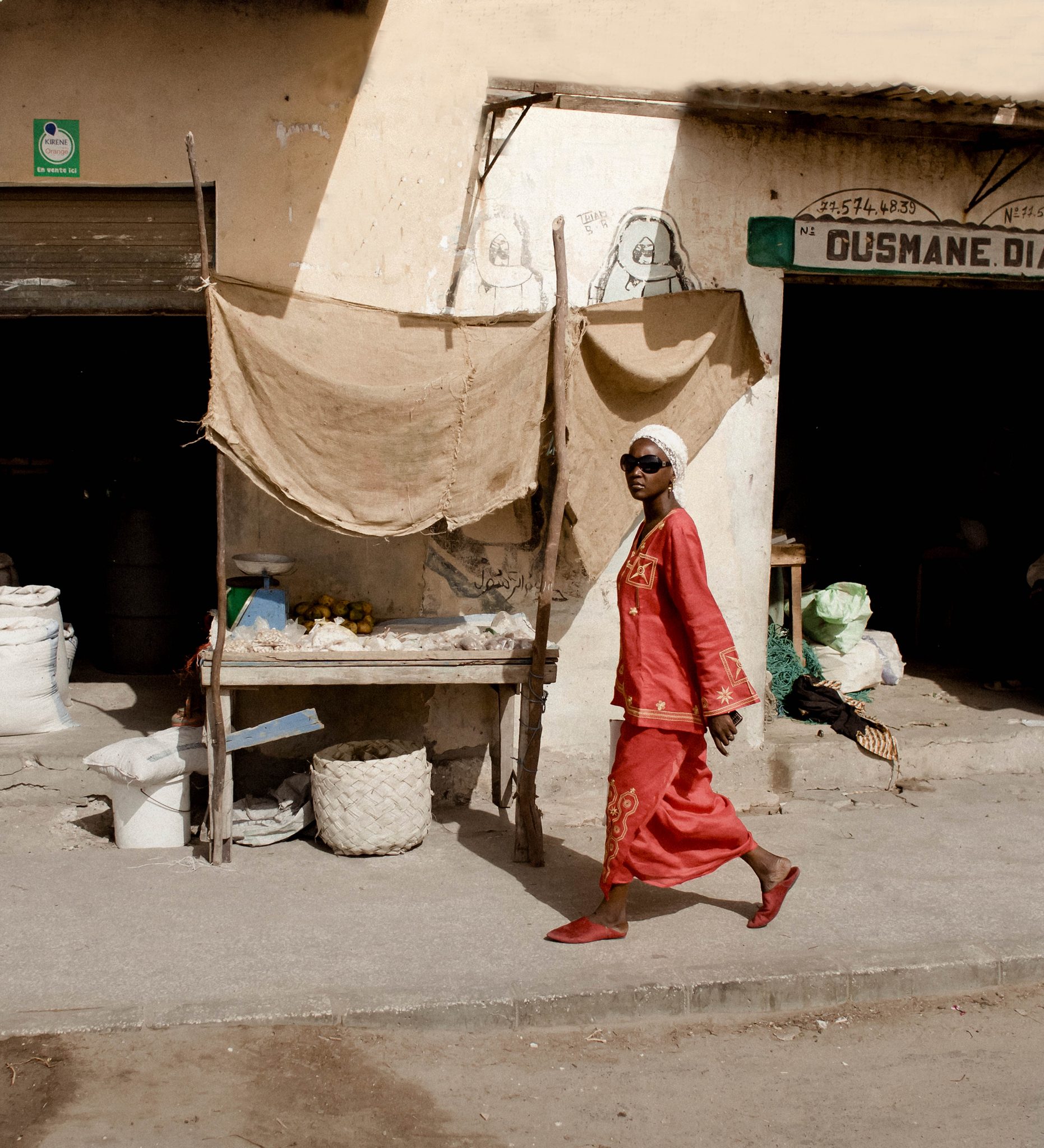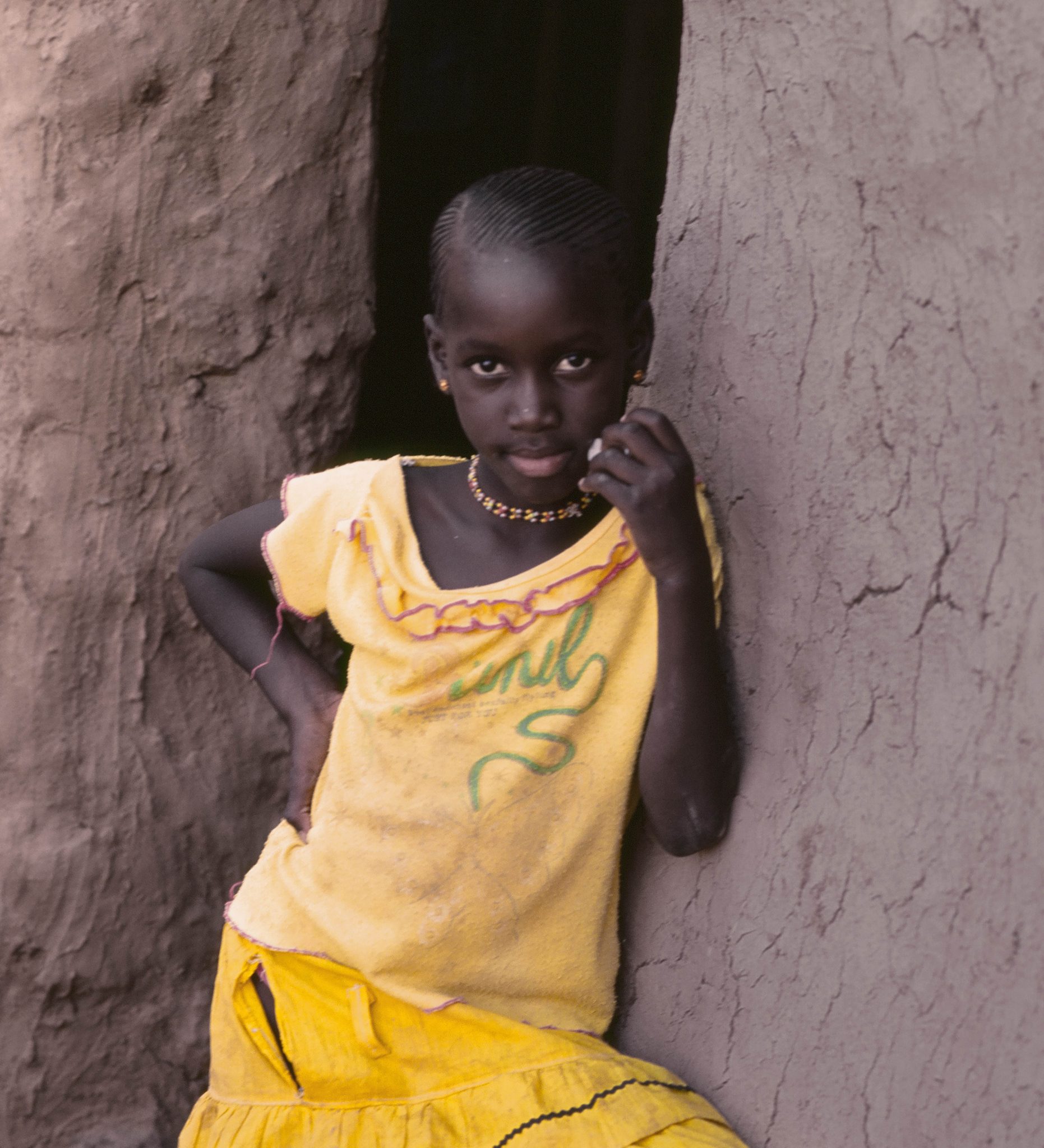
Ch. 5, Pt. 4: Road to Podor – Sofi
Everybody was silent, looking out the windows at the unfolding landscape. The bus moved along Route N2 as the road began curving eastward.
Now, we decelerated. On the left side of the road, I saw an off-ramp leading to a different, narrower road which extended north. Slowing even more, the driver took the off-ramp, leaving Route N2 and moving onto the narrow road.
“Where are we going?” said a voice quietly in French. It was François, who turned to his left and glanced at Anta next to the window. She smiled and shrugged. Nobody else spoke. The bus accelerated again, moving faster than ever.
A silence, heavier than the previous one, hung in the air.
“I have more news,” said another voice in French, this time belonging to Raphael. He stood up from his seat and stepped into the aisle while looking around. “We are going to pick up Sofi Seck,” Raphael continued, “the apprentice to Oumou Sy, Senegal’s most successful fashion designer.” Raphael paused, waiting for a reaction, but no one responded until Madeleine raised her eyebrows and opened her mouth slightly, glancing at Sylvie before looking again at Raphael.
“Oui, c’est vrai,” Raphael said, turning to Madeleine and eagerly making eye contact with her as if he wanted to enlist her aid in interesting other people. “Sofi will join us on the boat,” Raphael added in English, glancing toward Lomax, Ricardo, and me. None of us responded.
Madeleine and Sylvie began talking to each other quietly while everyone else remained silent. I doubted that any member of the group, except for Madeleine or Sylvie, knew who Oumou Sy, much less Sofi Seck, was. I assumed Lomax, now re-sizing an image on his computer, hadn’t understood, or perhaps even heard, what Raphael said. Lomax looked up.
“There’s a lot of vegetation along the sides of the road,” Lomax commented, pointing out his window. “It’s green out there. Why?”
“We’re only half a mile from the Senegal River,” Ricardo replied, “even though we can’t see it yet.”
“Where are we picking up the new passenger?” François asked, speaking in French loudly this time while looking at Raphael.
“She’s waiting for us in the town of Diama, next to the dam,” Raphael replied, referring to Diama Dam, which spanned the Senegal River and connected Senegal on the river’s southern bank to Mauritania on its northern bank. The dam prevented salt water from the Atlantic, which lay about 15 miles to the south, from moving up stream and mixing with the fresh water of the Senegal River.
“We’ll be in Diama in ten minutes,” Raphael added.

Countryside
The bus slowed, drawing even with a large collection of buildings set back a hundred yards on the left side. One structure, much bigger than the others, appeared to be a massive greenhouse. In front of the structure, adjacent to the road, was a wide area where two large trucks and three smaller trucks sat in the hot sun.
“If you look left,” Raphael continued in French, shifting his gaze from one passenger to the next while pointing, “you can see the largest farm in Senegal. It provides vegetables for customers in Europe.”
As I surveyed the landscape, with its facilities for processing vegetables and transporting them, I recalled reading about the venture, called Société de Cultures Légumières. It specialized in yams, chili peppers, beans, carrots, onions, and peanuts for the market in the U.K. The general manager, a man in his 50s from France, employed hundreds of people from Diama and nearby villages.
“I took a tour only last year,” François said in English, turning in his seat and looking at me. I nodded.
“Where are they?” Lomax asked, moving into the aisle and resting one hand on the back of the seat in front of me while gazing out the window.
“The fields?” François said, shifting his gaze. “On the other side of the buildings.”
“Of course,” Lomax replied. Outside the landscape had changed subtly, revealing the same green foliage but no buildings. Lomax declared: “The water from the river, I suppose, has been used to irrigate the fields.”
“We have to drive more slowly. It’s a bad road,” Raphael interjected in French as we arrived at a fork in the road. After coming to a complete stop, the driver turned right, and the road now changed from a surface of grey pavement to soft sand.
“We are entering Diama now,” Raphael added.

Waiting
On both sides of the road, we passed low buildings in many shapes. On the left side, a fence built of tree branches and palm fronds extended for hundreds of feet toward the center of town. When the long fence reached its northern edge, a new lot revealed a late-model, blue motorbike parked in front of a half-finished building. On the right side, another long fence of tree branches and palm fronds separated us from a collection of small houses painted pink and featuring doors with black metal frames.
As the bus moved farther into the town, we passed primitive shops on the right side and stopped in front of a structure unlike any of the others: It had three levels made of concrete bricks. The three-story building, with only its ground floor completely finished, resembled other structures we had passed on the highway. However, a row of three corrugated metal doors covered the storefronts on the ground level, preventing us from viewing the interior of the stores themselves.
Suddenly, one of the corrugated metal doors started rolling up, creating an increasing space between the bottom of the grate and the concrete floor. The upward motion stopped, leaving an opening big enough to allow a person to pass through.
A woman emerged.
The bus driver now displayed a broad smile and quickly extended his right arm to open the door of the bus. Raphael sprang to his feet.
The woman, who appeared to be about 25 years of age, had moved with little effort toward the open door and ascended the stairwell before Raphael could reach the door to greet her. She quickly came down the aisle and returned my gaze before I could react. But, in the next moment, she shifted her eyes to the floor and slipped into the row in front of me and across from Lomax.
I smiled and stared back at Sofi, but she didn’t look up again. I thought I could see a faint response on her face, framed by a light grey head scarf. I forced myself to look past her. The Chinese man, who had pivoted in his seat, turned away when he noticed I was staring at him. His behavior irritated me.

Riverbank
Two small boys, each one holding two medium-sized suitcases, had emerged from the opening in the storefront. The boys alternately carried and dragged the four bags onto the bus. Macky, I noticed, was watching, sitting up straight in his seat. I thought he would intervene. But he hunched forward and did nothing.
The bus driver spoke in Wolof to the boys, who stopped and stared at him and continued down the aisle. When the boys reached the row where Sofi sat, they dropped the four bags on the floor. Finally, Macky stood up, approaching the boys.
“Good job,” Lomax said, extending a 500-CFA-franc bill to each of the two boys. Sofi glanced at Lomax from across the aisle. The boys grabbed the money, ran up the aisle, and disappeared down the stairwell and into the building to our right. The corrugated metal covering started rolling down.
“Bon jour, Sofi,” Sylvie said, approaching in the aisle. Madeleine followed closely behind her. “May we sit with you?” Sylvie asked in French. Sofi nodded. A faint smile re-appeared on her face while Sylvie lowered herself into the seat next to Sofi. Madeleine sat in the seat next to Lomax.
“I’ve been wanting to meet you,” Madeleine said in French.
“Enchanté,” Lomax said, displaying a wide grin on his face. Madeleine gave him a severe look. I knew Lomax had learned the French expression the previous day. As Macky stored Sofi’s luggage with the other luggage in the final row of the bus, the driver pulled the vehicle away from the building beside us.
“Our next stop should be the Lampsar Lodge,” Ricardo commented. He didn’t seem to be addressing anyone in particular. His face showed no emotion. I thought he looked tired and assumed he had been injured recently. “After we pick up the professor’s bags,” Ricardo added, “we’ll need another two hours to reach the boat in Podor.”

Fishermen
François turned in his seat and looked back at Ricardo.
“It’s about a 30-minute drive to the lodge from here,” François said. “I’ve taken this road before.”
Denis turned toward François and opened his mouth to speak, but he closed it again without saying a word. Ricardo, too, was silent settling back in his seat as if he were going to sleep. Sofi, Sylvie, and Madeleine talked in low, animated voices. I didn’t try to follow their conversation. Their words in French were clear, but uninteresting. I glanced at Lomax, who was adjusting the dimensions and colors on a photo with his computer. I looked at my watch—3:27PM—and then I resumed my review of the latest reports from my colleagues in Washington, D.C.
When I next looked up from my iPhone, I realized the bus had stopped at a collection of buildings adjacent to what I thought was a lake. We were no longer on the road to Podor. The driver had opened the door of the bus. I could feel a slight breeze blowing.
“We’re here,” François announced.
“Lampsar Lodge?” Lomax asked, looking up from his computer. “Why is there water here? Aren’t we miles east of the river?”
“It’s a tributary,” François replied, “used for irrigating fields.”
In the row in front of me, Sylvie still sat next to Sofi; across the aisle, Madeleine still sat with Lomax. In the front row of the bus, the Chinese man now stood talking with Raphael. The two men descended the stairwell and stepped onto the sandy ground next to a statue of an African dressed a French uniform from the 19th century. The men shook hands, and the Chinese man disappeared into a bungalow at the edge of the water. Raphael returned to the bus.
“Macky!” Raphael shouted, gesturing toward the porter, who removed two medium-sized suitcases belonging to the Chinese tourist from other pieces of luggage and exited the bus. Macky followed the Chinese man into a bungalow. Hercule approached in the aisle, nodded at me, and introduced himself to Ricardo.

Woman Carrying Supplies
“It looks like the Chinese tourist has left us,” Hercule said, stopping in the aisle between Ricardo and me. Hercule looked out the window in the direction of the bungalow into which the Chinese man had disappeared. “What do you think he is doing here?” Hercule asked.
Ricardo followed Hercule’s gaze but didn’t reply.
Lomax made a gesture of bringing up a bottle to his mouth, and Hercule nodded. Lomax pointed at Ricardo. He also nodded.
“Three beers,” Lomax said, looking at me. I reached into the white Styrofoam box on the seat beside me, removed four bottles, and handed out three of them. Madeleine glanced at me, but I didn’t have the impression she wanted a beer. I had the impression she was disapproving.
“Ladies?” I said, looking from Sofi to Sylvie to Madeleine while holding up the lone bottle still in my hand.
Sylvie shook her head.
“Later,” Sylvie said, looking at me and smiling before turning back to Sofi. “Your showroom in Paris is impressive,” Sylvie commented to Sofi. “A few months ago, I stopped inside the store on my way home from the hospital where I work and saw a most beautiful boubou and head scarf.” Sylvie paused. “The silk and linen fabrics and colors and designs were exquisite.”
I drank my beer. Outside, in the middle of compound, I noticed Macky walking from one building to another around the water, empty-handed. He had not yet found the professor’s luggage. I wondered if he was having difficulties locating the room.
“I hope we can make our way to Podor without any more interruptions now,” Hercule said loudly in French, finishing his beer and looking toward Raphael and shaking his head.
“Oui, monsieur,” Raphael replied. He seemed nervous again. “As soon as Macky returns with the luggage for the professor,” Raphael added, “we will go directly to Podor.” He paused. “No more stops.”
Denis, I noticed, was studying Raphael. Denis didn’t look happy but didn’t rise from his seat or speak.

Two Young Men
“Here is Macky,” Lomax said, looking out the window. Macky approached carrying three bags, one in each hand and the third hanging from his shoulder. He entered the bus.
Abruptly, Hercule rushed up the aisle, brushing past Macky, and exited the bus. Half walking, half running, Hercule moved quickly across the sand and disappeared into a building. Minutes later, Hercule re-appeared and re-entered the bus.
“Selections at your showroom in Dakar were limited,” Sylvie was saying to Sofi. “Disappointing,” Sylvie added. She glanced at Macky as he carried the professor’s bags down the aisle. “I realize you have to market your clothes to people who have money,” Sylvie continued, “but you could offer the same options to shoppers in Africa you provide in Europe?”
I was sleepy hearing the slow rhythms of Sylvie’s French in front of me and the staccato accents of Macky’s Wolof in back of me. I rolled up in a light jacket. I slowly closed my eyes.
The bus was moving again. I felt the warm glass of the window. I stretched my legs diagonally in front of an empty seat next to me.
“We’re here,” a voice said much later.
I opened my eyes. The voice of François was familiar.
I noticed the sun was low in the sky. To my right, the sun cast long shadows into the trees. To my left, the sun sat in a pink disc on the horizon like a god. Directly ahead, a white boat, 200 feet long with three levels, sat motionless. Macky was pulling a suitcase up a long ramp to a second deck while Sylvie watched from the edge of a wharf. Sylvie was talking, but Macky wasn’t paying attention. A few European passengers and a few African crew members watched from a third deck. The Bou el Mogdad was waiting.
**
